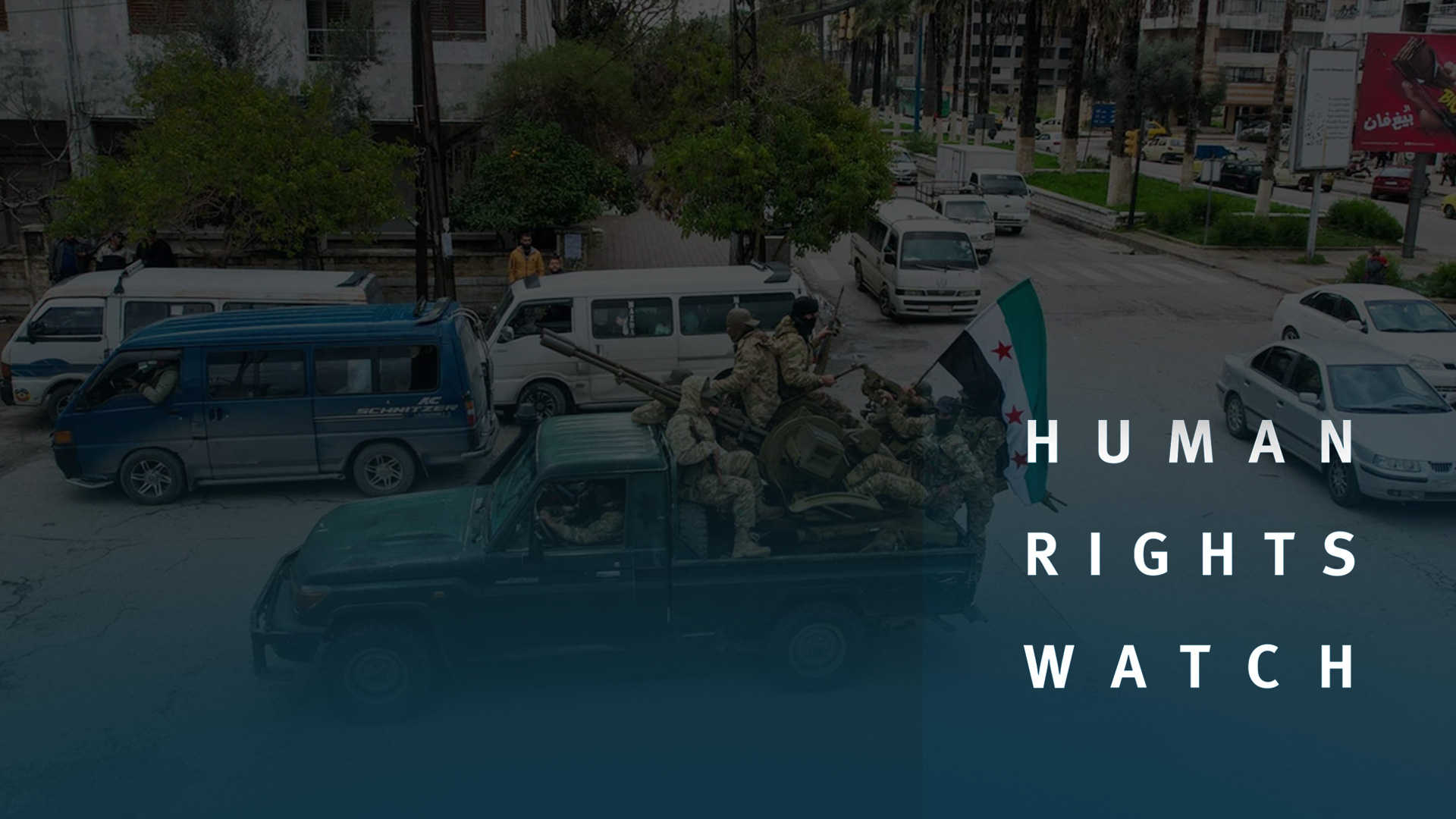Human Rights Watch: March Atrocities in Syria Require Senior Officials to Be Accountable
Human Rights Watch, with Syrian groups, reports March atrocities involved identity-based killings of Alawis, urging Damascus to probe senior officials' responsibility, not just low-level perpetrators.

Erbil (Kurdistan24) – Human Rights Watch, together with Syrians for Truth and Justice and Syrian Archive, issued a damning report on Tuesday urging the Syrian transitional government to ensure accountability for the widespread atrocities committed in March 2025.
The 51-page report, entitled “Are You Alawi? Identity-Based Killings During Syria’s Transition,” documents mass abuses carried out during security operations across three governorates and calls for judicial proceedings to extend beyond individual crimes to address institutional responsibility.
According to Human Rights Watch, while the transitional government has pledged accountability, it has provided little transparency on whether its inquiry has investigated the role of senior military or civilian leaders, or how it intends to prosecute those with command authority. The National Committee for Investigation and Fact-Finding into the Events on the Coast, which presented its findings in Damascus on July 22, confirmed that at least 1,426 people were killed and 298 suspects referred to prosecutors. However, the committee’s framing of the violence as acts of “personal revenge” failed to confront the deeper institutional failures and the responsibility of senior officials who coordinated or allowed the atrocities.
“The government’s acknowledgment of atrocities is a step forward, but it falls short of ensuring justice for higher-level officials who enabled or failed to stop them,” said Hiba Zayadin, senior Syria researcher at Human Rights Watch.
The March violence was triggered on March 6 by coordinated attacks from armed men described by the government as loyalists of the former Bashar al-Assad regime, which killed at least 200 government personnel. In response, government forces launched extensive security operations that rapidly escalated into collective punishment, primarily targeting Alawi communities perceived as loyal to Assad.
Researchers documented atrocities across more than 24 towns, villages, and neighborhoods between March 6 and March 10, including summary executions, looting, arson, arbitrary detention, and home raids. Verified video evidence and eyewitness accounts revealed that civilians were interrogated about their identity before being killed, with many victims executed solely because they were Alawi.
A woman from Brabshbo village in southern Latakia recounted how armed men stormed her house on March 8. After learning her family was Alawi, they dragged her husband outside and shot him on the doorstep without further questioning. “They didn’t ask about his work or anything, they just shot him,” she testified to Human Rights Watch.
The report stressed that even though no direct orders to commit atrocities were uncovered, the Defense Ministry played a central role in coordinating military deployments during the operation. Fighters told Human Rights Watch that orders were transmitted through ministry-linked channels, assigning them shared operational zones and requiring them to hand over areas to General Security forces.
“You do not need a signed order to hold senior officials and faction commanders accountable,” said Bassam al-Ahmed, executive director of Syrians for Truth and Justice. “The question is not just who gave the orders, it is why no one in charge curbed the widespread killings and looting. That is a failure of leadership and a failure of will.”
The joint investigation also found that patterns of arbitrary detention and identity-based targeting began weeks earlier in Homs and rural Hama, and have since continued.
Human Rights Watch emphasized that these atrocities reflect a broader systemic problem rather than isolated acts. “This is not about a single week in March,” said Jelnar Ahmad, program manager at Syrian Archive. “It is an indicator of a broader pattern that needs to be addressed structurally and transparently.”
The report welcomed the committee’s engagement with civil society and its recommendations for reforms, including transitional justice measures, reparations, and consolidating armed groups under transparent command structures. However, the rights groups stressed that credibility depends on follow-through, transparency, and accountability at the highest levels.
They further urged Damascus to allow international accountability mechanisms, including UN monitoring, and to implement comprehensive security reforms, such as vetting fighters, removing abusive personnel, and enforcing strict codes of conduct.
Human Rights Watch concluded that unless senior officials and commanders are held to account, Syria risks a cycle of reprisals and further atrocities.